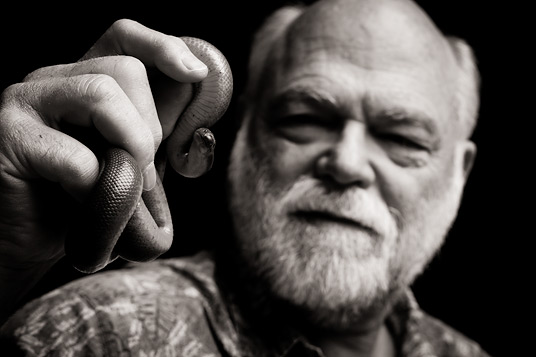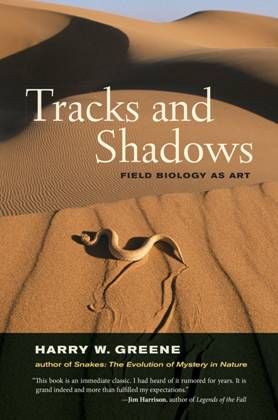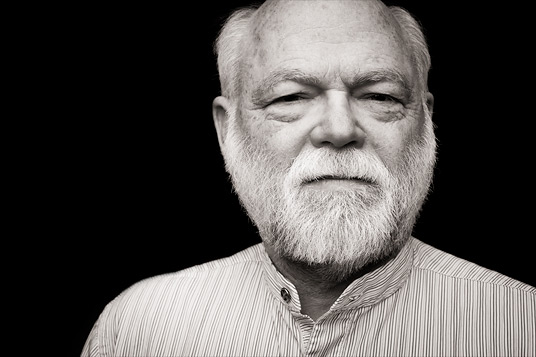The diversity of life on Earth is under serious threats from multiple human-related causes. Science plays well-known roles in addressing management aspects of this problem.
Dr. Harry W. Greene, professor of ecology and evolutionary biology at Cornell University, wants us all to know that natural history also plays a vital role in Earth’s health.
Natural history enhances our appreciation for organisms and environments, thereby influencing value judgments that ultimately underlie all conservation. Wow, that is huge! This is why we should all care about nature — our planet and all life on Earth depends on it!
While Greene is in Houston for the East Texas Herpetological Society Annual Conference and Reptile Expo September 19 – 21, he will give a special presentation at the Houston Museum of Natural Science on Monday, September 22 at 6:30 p.m.
Greene will explain how an 18th century philosopher’s distinction between “beauty” and “sublime” can be used in the context of Darwin’s notion of “descent with modification.” As a good biologist, he will illustrate this approach with frogs, snakes, African megafauna, Texas longhorns, and California condors.
Dr. Harry Greene is a popular author and will be signing copies of his latest book Tracks and Shadows: Field Biology as Art following the lecture. The book explores multiple themes including the nuts and bolts of field research and teaching, the destruction of habitat and loss of biodiversity, the “sheer poetry” of field biology, and the role of natural historians in saving species from extinction.
“Natural History and Aesthetics – Why Should We Care About Nature?”
Harry Greene, Ph.D., Cornell
Monday, September 22, 6:30 pm
Houston Museum of Natural Science
Public $18, HMNS members $12
To register in advance, click here or call 713.639.4629.
Harry W. Greene’s primary interests are behavioral evolution, community ecology, and conservation biology, and is especially interested in mammals, lizards, and snakes, particularly vipers. Greene is the Stephen Weiss Presidential Fellow and Professor of Ecology and Evolutionary Biology at Cornell University and a recipient of the E.O. Wilson Award from the American Society of Naturalists. His book Snakes: The Evolution of Mystery in Nature (UC Press), won a PEN Literary Award and was a New York Times Notable Book.
Love our lectures? Save the date for these upcoming nature lectures at HMNS!
More info at www.hmns.org/lectures
Plant Conservation in a Rapidly Changing World
Thursday, September 25, 6:30 p.m.
Habitat destruction will drive to extinction more than half the kinds of plants and animals that exist now on Earth within the next 75 years or so. Dr. Peter Raven will share how plant species can be saved through high-tech genetic seed banks, the establishment of protected areas, and botanic garden collections. Cosponsored by the Mercer Society.
Click here for tickets.
Monarchs: Is the Migration Moribund?
Monday, September 29, 6:30 p.m.
The monarch butterfly is known for its annual roundtrip journey to and from overwintering sanctuaries in central Mexico. Yet today this marathon migration is under great threat. Dr. Nancy Grieg will discuss what, if anything, can we do, followed by a screening of the 3D film Flight of the Butterflies.
Click here for tickets.
Gulf of Mexico Biodiversity and Oil Spill Resilience
Monday, October 13, 6:30 p.m.
The Gulf of Mexico appears quite resilient in the face of many environmental insults, such as overfishing, habitat loss and destruction, degraded water quality, extensive coastal development, and climate change. Dr. Wes Tunnel will explain what a tipping point of too many problems might eventually cause.
Click here for tickets.
“Bats: The Night Shift”
Monday, October 27, 6:30 p.m.
Bats have radiated into almost every habitat on Earth, bringing with them their important ecological responsibilities. Their great diversity of feeding strategies is a testament to the adaptability of these nocturnal animals and reveals their important roles they play within ecosystems. Bat researcher Dr. Cullen Geiselman will discuss the great variety of bats, including the 38 species in Texas of which eight call Houston home.
Click here for tickets.
Growing an Ark: The Expanding Role of Gardens in Plant Conservation
Thursday, November 6, 6:30 p.m.
Journey around the world and learn of the significant successes and contributions by botanic gardens in the efforts to rescue plants from extinction through expanded research, conservation programs, and environmental education with Dr. Peter Wyse Jackson of the Missouri Botanical Garden. Cosponsored with The Mercer Society.
Click here for tickets.




